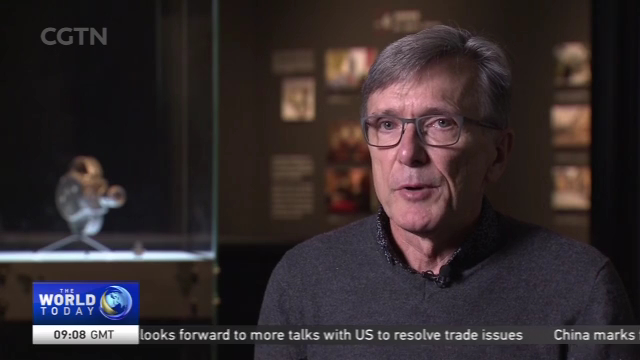
17:39, 13-Dec-2018
Remembering John Magee: The missionary who documented Nanjing Massacre
Updated
17:09, 16-Dec-2018
03:07

The only surviving film documentation of the massacre came from the hands of an American priest named John Magee, who also helped protect civilian refugees during the weeks of mass murder, rape and torture by Japanese soldiers. Magee left Nanjing in 1940, but his 28 years in the city have inspired his descendants to search for that history.
CHRIS MAGEE GRANDSON OF JOHN MAGEE My grandfather was essentially a Nanjing person. His intention was to live here. He raised uh, his children in China. He had four boys that lived in the house in Nanjing. You know you hear about history objectively. And you hear about the numbers of people and this and that. But you know, for some reason, when your family is connected to history and you come to that place, I think that changes everything. You connect to that history yourself.
So the emotional stuff still very very very close. So, um, they had a frame for my grandfather films showing, uh, Madam Xia Shu Chin, uh, with her sister right after that. And so, um, that frame connected us together. So I I brought that frame of film to madam Xia. Ah, and we talked and I got to see this woman who had survived everything and brought up a family. It was just amazing.
Um, the Nanjing massacre was something that my father and uncles talked about. Um, but in the U.S. it was pretty much unknown. This was something they talked about, something we knew about in our family. But so that that wasn't really in the forefront.
The original films my grandfather took, where what we had of them, were in a garage in a box stored away. And the camera was in a box in a store room, you know, because nobody really knew in the west. This was a story that hadn't been told.
Um, China went through incredible slaughter when the Japanese were here. None of us experienced that, but we were able to connect, um, by my grandfather being at that war when Nanjing fell and staying for the aftermath.
So I think our perspectives are shifted forever by that act of compassion, by the choice he made to serve others. The war brings out the best and worst of people, and in that case, the effect the war had my grandfather and our family was that he chose to do the right thing and do the best he could. And that's someone we'll always look up to for that.

SITEMAP
Copyright © 2018 CGTN. Beijing ICP prepared NO.16065310-3
Copyright © 2018 CGTN. Beijing ICP prepared NO.16065310-3